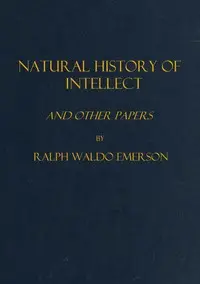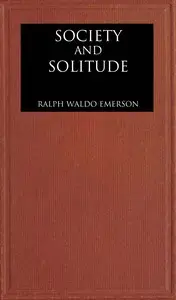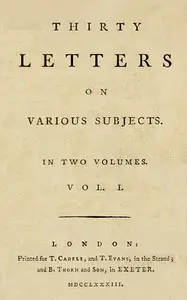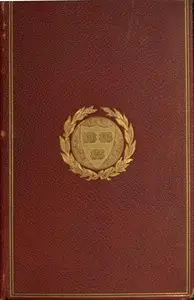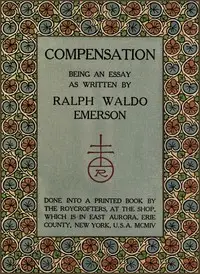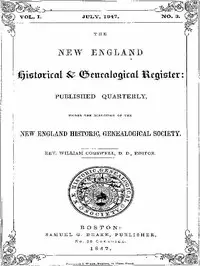"Letters and Social Aims" by Ralph Waldo Emerson is a group of writings that looks at how speaking well, writing poems, using your imagination, and getting along with others affect how we see the world and what's normal in our society. Emerson was big in the transcendentalist movement, and he writes about how what we think as individuals and what society expects from us mix together. The book starts by talking about how things we can touch and our imagination are connected, stressing that poems and thinking carefully help us understand the world. He thinks about how life's important parts often show up as symbols and comparisons in nature, which helps us understand ourselves and each other. Also, he mentions how important manners are and how they change how we act around other people, and he teaches us the role of talking well and acting nicely in how we connect with others. This sets us up to look more closely at what we want to achieve as a society and how art and talking to each other can change us.
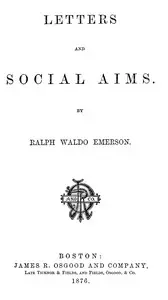
Letters and social aims
By Ralph Waldo Emerson
Explore the power of words and imagination, as one thoughtfully connects nature, society, and the individual.
Genres
Released
2023-08-12
Formats
mobi (images)
epub
epub3 (images)
epub (images)
txt
Free Download
Summary
About the AuthorRalph Waldo Emerson, who went by his middle name Waldo, was an American essayist, lecturer, philosopher, abolitionist, and poet who led the Transcendentalist movement of the mid-19th century. He was seen as a champion of individualism and critical thinking, as well as a prescient critic of the countervailing pressures of society and conformity. Friedrich Nietzsche thought he was "the most gifted of the Americans," and Walt Whitman called Emerson his "master".
Ralph Waldo Emerson, who went by his middle name Waldo, was an American essayist, lecturer, philosopher, abolitionist, and poet who led the Transcendentalist movement of the mid-19th century. He was seen as a champion of individualism and critical thinking, as well as a prescient critic of the countervailing pressures of society and conformity. Friedrich Nietzsche thought he was "the most gifted of the Americans," and Walt Whitman called Emerson his "master".
Total Reviews
10.0k
Total reviews from Goodreads may change

